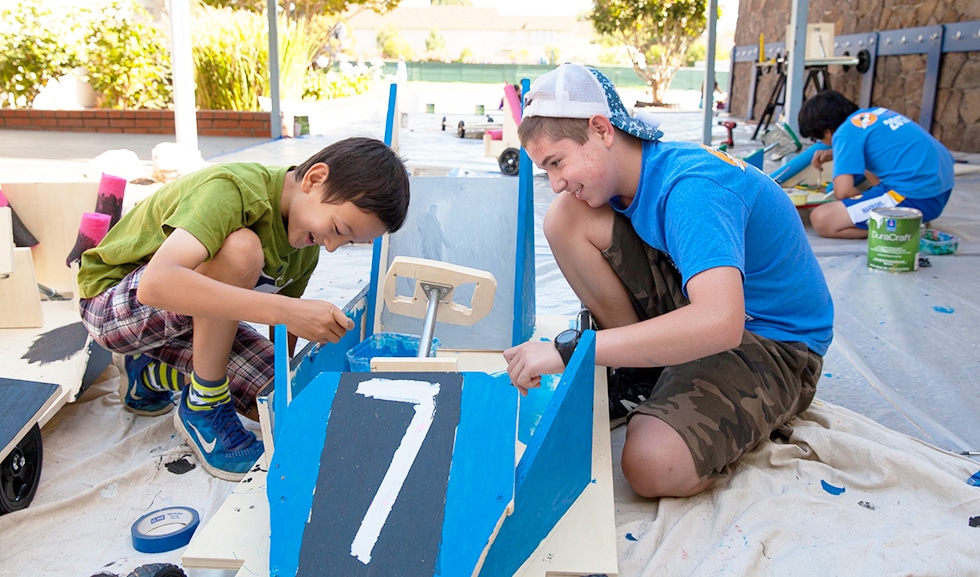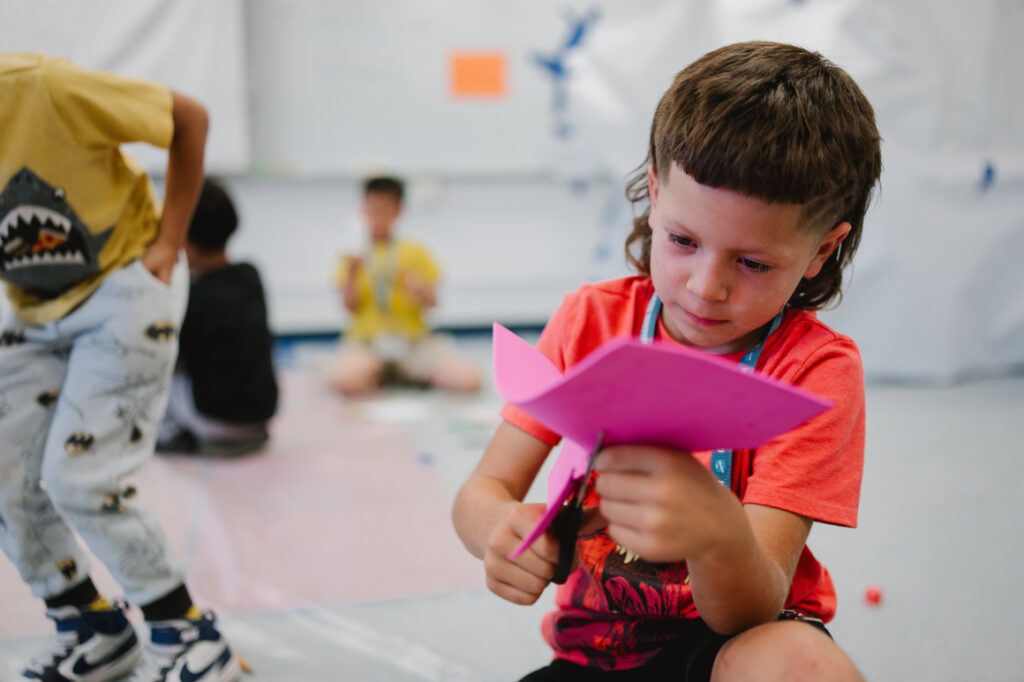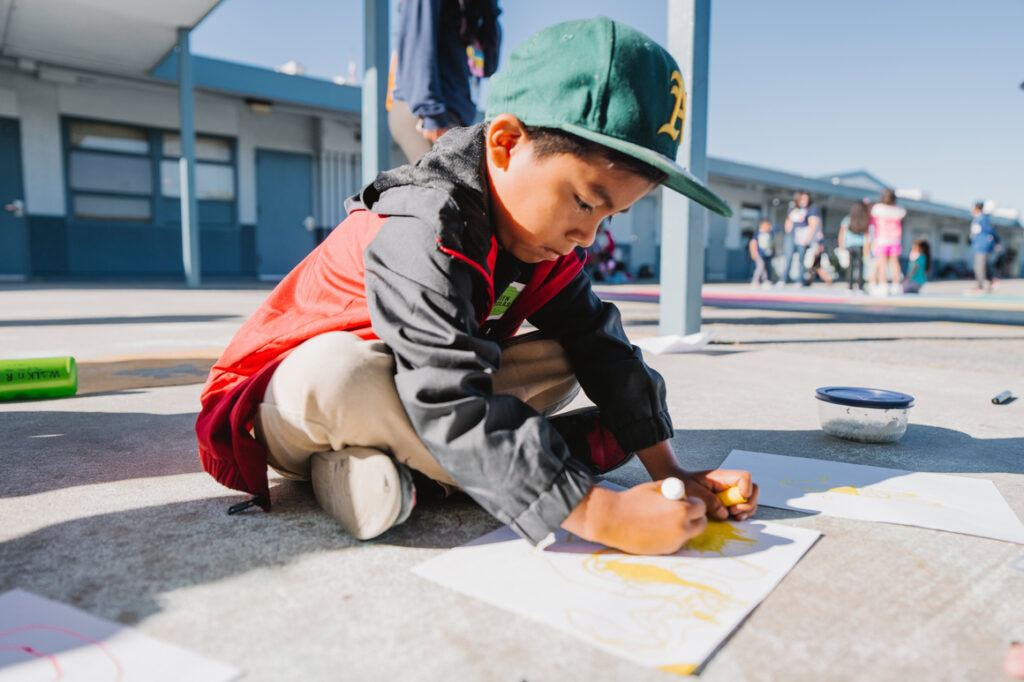Years ago, a popular television show starred a protagonist who famously freed himself from dangerous situations each week by using simple, found materials to create unconventional means of escape. MacGyver’s name became synonymous with craftily engineering a solution to the most life-threatening calamity with the unlikeliest of materials. Millions tuned in each week to see how he would use engineering ingenuity to extract himself from his latest predicament.
Engineering falls under this same umbrella of innovation. It requires a can-do attitude and the initiative to solve a problem. Add in creativity, willingness to follow tangential curiosity and the embracing of technology to help get the job done, and an engineer is born. And don’t we all do this sometimes or on some level as we work to solve problems or dilemmas? All of us have a little engineering inside and we can work to strengthen that part of ourselves each and every day. Engineering summer camps for middle schoolers offer kids an opportunity to immerse themselves in a fertile workshop atmosphere where they can build skill set competence and creative confidence in their inner engineer.
Engineers Are Everywhere
Contrary to the popularly held belief, engineering is not a narrowly defined career. The reality is that engineering is a state of mind—it’s a noun and a verb. Consider the many types of engineers that make our world a better, more comfortable place to live. Beyond that, there are innumerable others who implement the verb in their daily endeavors. There are the doctors who engineer innovative medical solutions for their patients; sculptors who engineer works of art, designing and building in three dimensions; even parents who blog from home about “life hacks,” which offer creative solutions to some of life’s most common problems.
Engineering Design Cycle
Engineering design is so important, it is one of the four Core Ideas in The Next Generation Science Standards alongside Life Science, Physical Science and Earth and Space Science. In this document that guides K-12 science education, engineering is broadly defined as “any engagement in a systematic practice of design to achieve solutions to particular human problems.” So if engineering is using science and technology to design a product, process or system to solve a problem, it involves competencies everyone can use.
The design process is a simple cycle used to analyze a problem and design creative solutions. At Galileo, this cycle was inspired by the innovation process at the Stanford d.school but specially adapted for middle school kids. It starts with understanding the problem and identifying a goal. Then the team collaborates to brainstorm ideas before working to create a solution. The resulting design is produced, tested and evaluated. If not quite right, the design is tweaked or scrapped altogether in favor of a new one. Then the test and rework process is repeated until the goal is successfully achieved.
Something For Everyone
This design process can be learned and practiced through a variety of differentiated engineering challenges at summer camp. Depending on a camper’s personal interests, they can apply engineering design in these diverse contexts:
- Robotics – campers can build their very own robot pet using corrugated plastic and Arduino-type microprocessors. Construction and programming basics help bring these critters to life.
- Computer Hardware/Electrical – middle schoolers can learn the basics of electrical engineering while reading schematics and wiring circuits. Then they can take apart computer components and recombine parts to create new electronic devices.
- Software – once kids learn the basics of a software language, they can apply it to one of a number of applications: mobile games, computer animation, virtual reality, augmented reality and 3-D printing & modeling.
- Chemical – campers can get a sense of how combinations and concoctions work together with a major in Chefology to make culinary magic.
- Mechanical – campers can use hand and power tools to construct a custom go-kart, then showcase their creations at week’s end. Or they can build a working catapult, balancing height, distance and accuracy to launch a projectile at the target in the end-of-session tournament.
Besides specialized engineering opportunities for middle school kids, Galileo camps also offer several camp themes that are rich with engineering challenges for their younger siblings, including biomedical, aerospace, civil/mechanical and materials science and engineering. Each week-long session helps kids adopt the characteristics of an Innovator’s Mindset: be visionary, be courageous, be collaborative, be determined and be reflective.
Encouraging the Engineer Inside
There’s a little engineer in all of us, and whether or not your kid is destined to choose engineering as a career, why not enhance their potential by checking out an engineering summer camp for middle schoolers? There, they can build competencies that support 21st-century learning and gain confidence as they experience real-world applications. You never know when the mindset and skills acquired might help them MacGyver their way out of a jam and possibly even spark their interest in a future career.
Check out the engineering summer camps for middle schoolers and their younger siblings in your area: San Francisco Bay Area, Southern California, and Chicagoland. Sign up for our mailing list to keep up-to-date on our camp happenings and innovation resources. Or, enroll in camp today.



